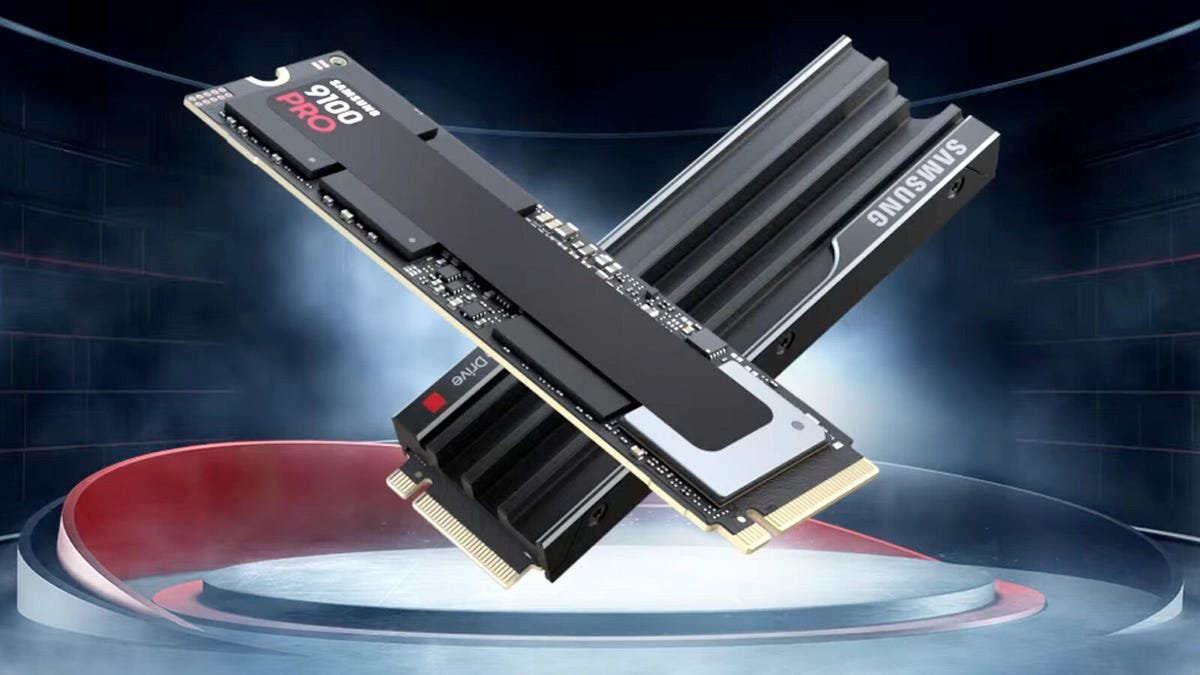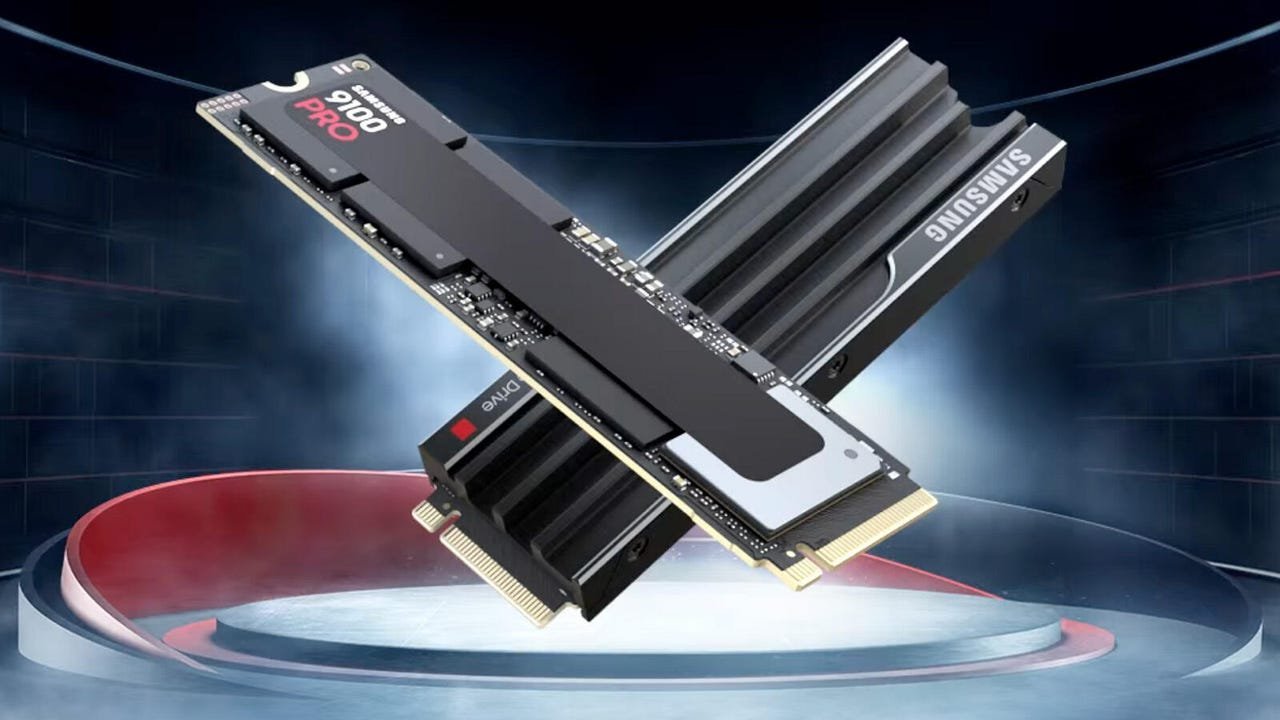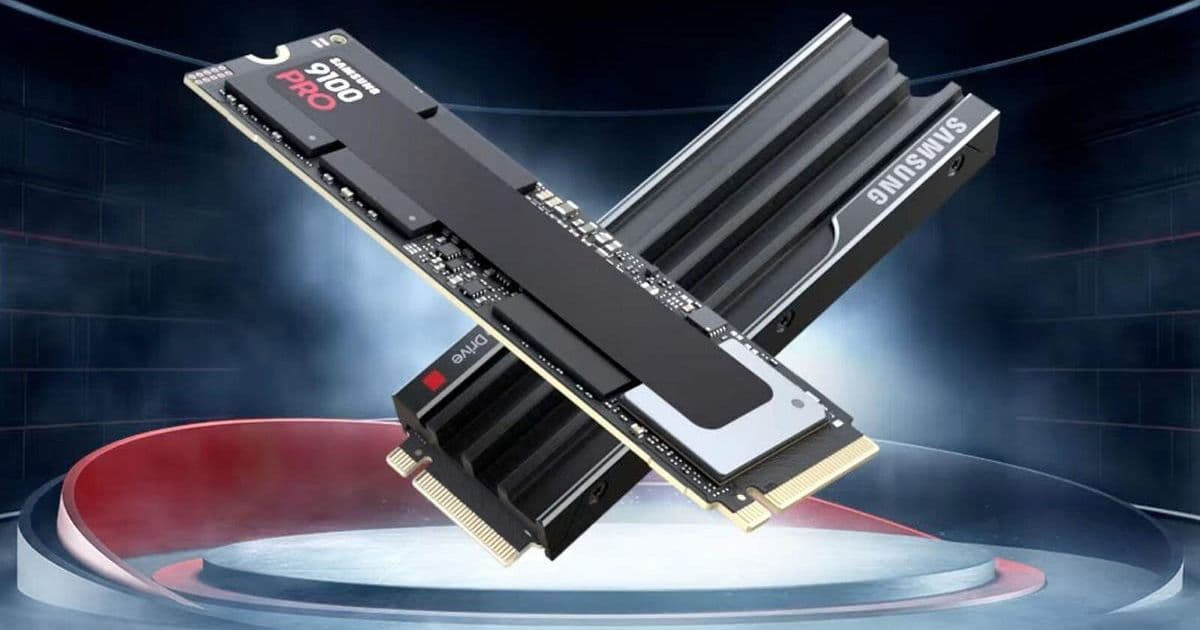Samsung unveils an 8TB version of its flagship 9100 Pro SSD, delivering PCIe 5.0 speeds up to 14,800 MB/s for AI, gaming, and content creation workloads. The drive's $1,000 price tag and optional $20 heatsink highlight the premium cost of cutting-edge storage.

In an era where AI datasets and 4K video projects consume terabytes like yesterday's megabytes, Samsung has unveiled a storage powerhouse: the 8TB variant of its 9100 Pro SSD. This M.2 2280 drive represents the bleeding edge of consumer storage technology, pushing PCIe 5.0 bandwidth to its limits while forcing professionals to confront the steep price of extreme capacity.
Performance That Demands PCIe 5.0
The specifications read like a storage engineer's wishlist:
- 14,800 MB/s sequential read and 13,400 MB/s write speeds – double the throughput of Samsung's PCIe 4.0 990 Pro series
- 2,200K/2,600K IOPS random read/write performance
- 4,800 TBW endurance rating (Terabytes Written)
- 1.5 million hours MTBF (Mean Time Between Failures)
These figures aren't just theoretical benchmarks. When handling massive AI training sets, 8K video timelines, or next-gen game assets, this throughput translates to tangible workflow acceleration. The drive leverages Samsung's new 5nm controller, which reduces power consumption by 49% compared to previous generations – a critical efficiency gain given the thermal challenges of PCIe 5.0 workloads.
 The 8TB 9100 Pro SSD with optional heatsink maintains a svelte 8.8mm profile. (Image: Samsung/ZDNET)
The 8TB 9100 Pro SSD with optional heatsink maintains a svelte 8.8mm profile. (Image: Samsung/ZDNET)
The Heatsink Dilemma
Samsung's pricing strategy reveals an intriguing detail: The heatsink costs extra. While the bare drive starts at $999.99, the version with Samsung's engineered heatsink commands $1,019.99. This $20 premium underscores a critical reality for PCIe 5.0 adoption: Without adequate thermal management, sustained performance craters. Samsung's solution keeps the package at just 8.8mm thick – crucial for laptop compatibility and PS5 installations – but professionals pushing sustained workloads should consider the heatsink mandatory insurance.
Market Context and Alternatives
Currently, 8TB PCIe 5.0 drives remain rare. Competing offerings from WD, Lexar, and Sabrent max out at PCIe 4.0 speeds (approximately 7,000 MB/s) with slightly lower price points. The only announced PCIe 5.0 competitor – WD's Black SN8100 – lacks a release date. This leaves Samsung's 9100 Pro as the only game in town for those needing both massive capacity and PCIe 5.0 bandwidth.
Who Truly Needs 8TB of Blazing Storage?
For developers working with massive container libraries or ML training sets, this drive eliminates storage bottlenecks that previously required RAID setups. Video editors can work directly from 8K source files without proxy workflows. Even hardcore gamers gain near-instantaneous asset loading. Yet the $1,000 price necessitates careful consideration: Unless your workflow consistently saturates PCIe 4.0 bandwidth, the cost-to-benefit ratio may favor high-capacity PCIe 4.0 alternatives.
As storage densities climb and PCIe 5.0 becomes mainstream, Samsung's 8TB gambit signals where the industry is heading – toward terabyte-scale workloads living directly on ultra-fast local storage. But for now, this capability comes at a premium that only power users can justify.
Source: Adrian Kingsley-Hughes, ZDNET

Comments
Please log in or register to join the discussion